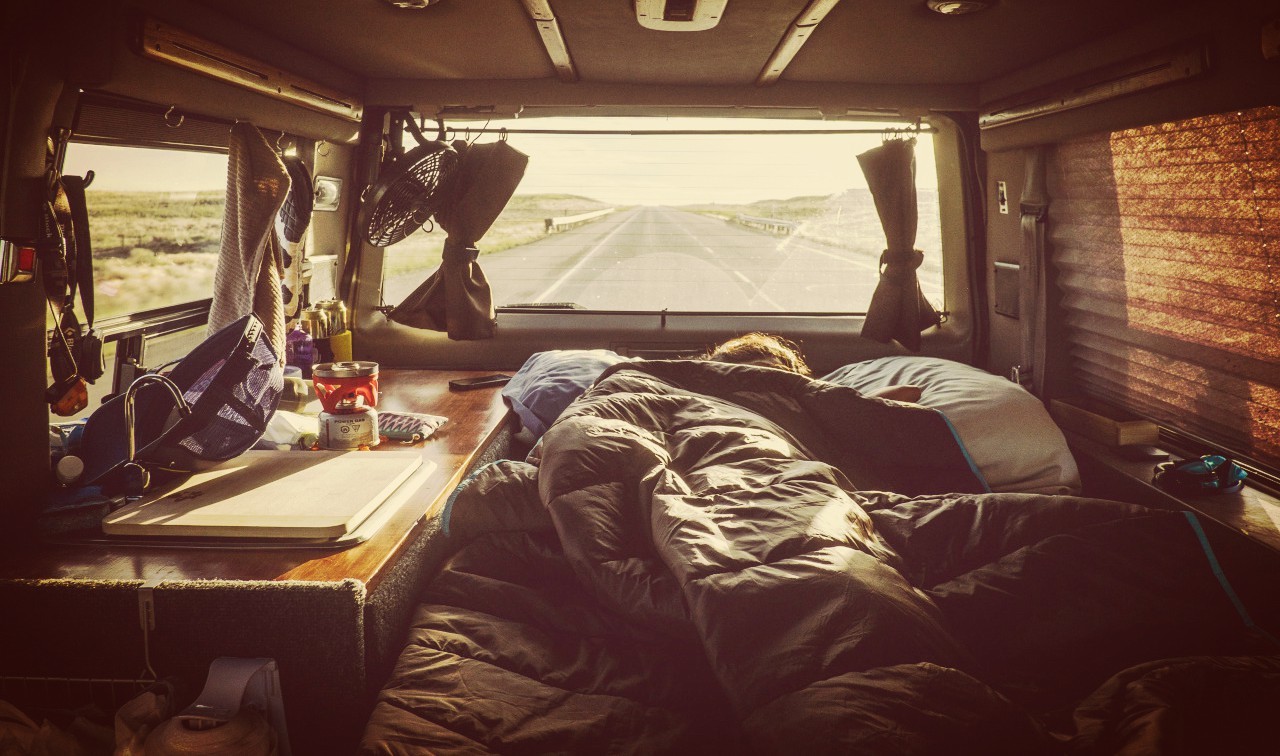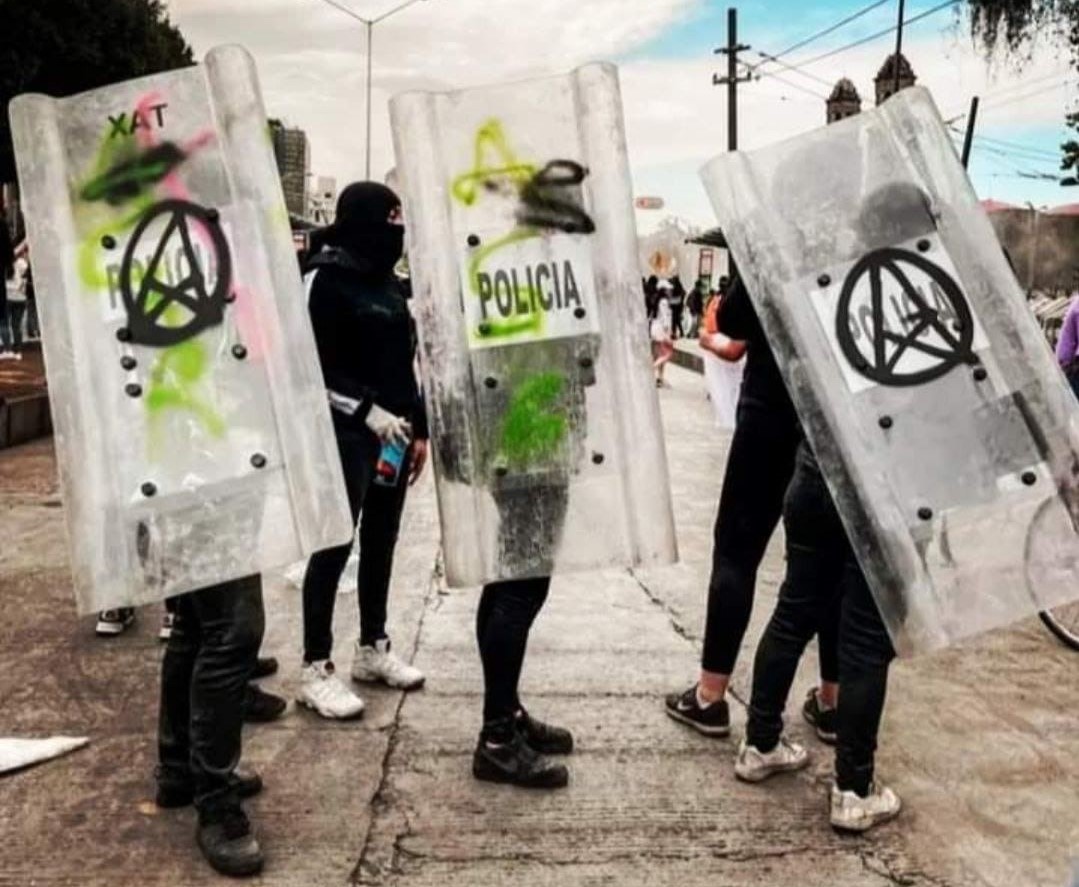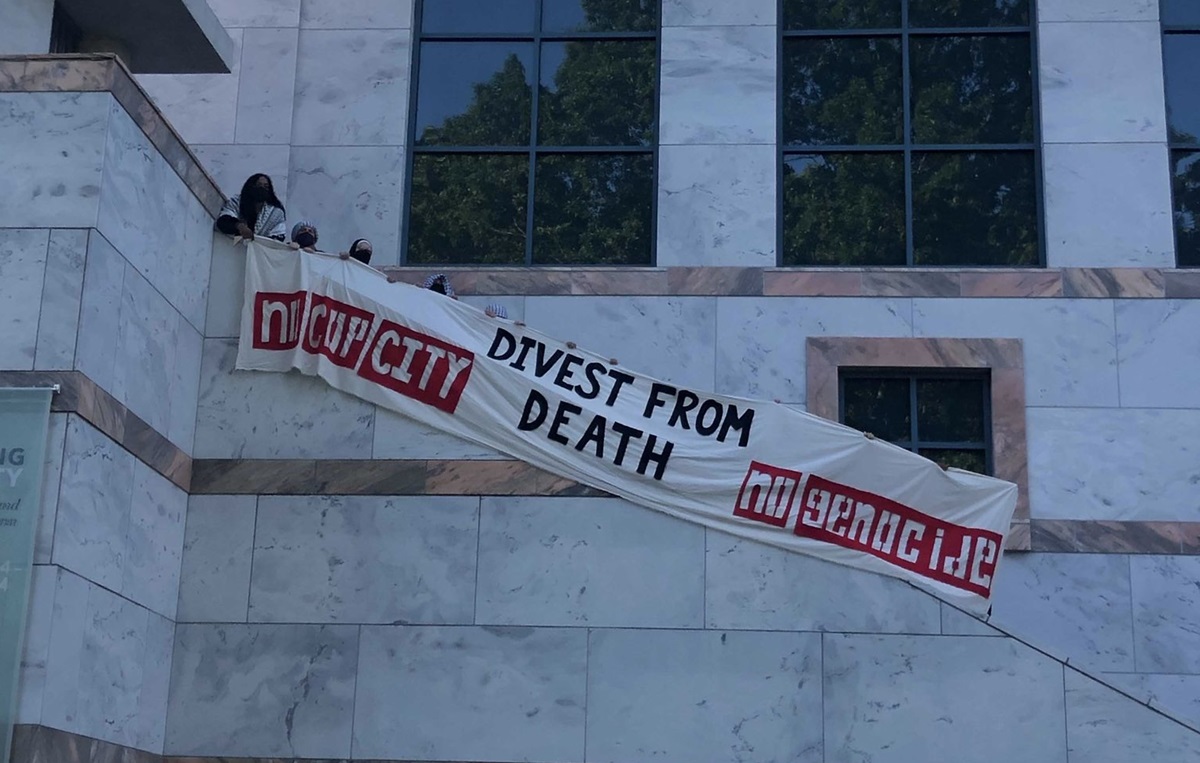Filed under: Critique, Editorials, Technology, The Grouch

It’s necessary above all to maintain the reign of the economy beyond the extinction of the wage system. This has to do with the fact that if there is less and less work, everything is all the more mediated by money, be it in very small amounts. Given the absence of work, the need to earn money in order to survive must be maintained. Even if a universal basic income is established one day, as so many liberal economists recommend, its amount would need to be large enough to keep a person from dying of hunger, but utterly insufficient to live on, even frugally. – Now, The Invisible Committee
Taking a break from watching the various careers of Matthew Heimbach and Eli Mosley burn like dead Christmas trees, (seems the Alt-Right doesn’t actually throw anyone out of helicopters, just under buses), I stumbled upon a mini-doc on #VanLife produced by VICE. In the short clip below, a VICE journalist follows around two ‘influencers,’ (people popular on social media), in their van, as they discuss how they get paid to take photos on Instagram while wearing different products, like watches and other lame shit. Fascinating.
Of course, most people that are heeding the call of the van are not making money this way; most people are working through the internet doing a variety of odd jobs in the gig economy, or simply living how people that have lived out of their cars have always lived, however the hype, does seem to be growing. In short, the #VanLife millennial subculture is pretty straight forward. People driven by a mix of economic forces, be they the rising cost of rent, or the desire to quit their jobs in cities, are leaving their apartments and homes and buying vans, and then converting the vans into mini-apartments. Moreover, people are documenting this experience, often on Instagram and YouTube.
Capitalist press like Forbes reports that "50.9% of the U.S. population will be freelancing [working in the so-called gig economy or via Craigslist, etc] in 10 years if a current uptick in freelancing continues at its current pace." This process will be accelerated by automation. pic.twitter.com/xcwf5pQir3
— It's Going Down (@IGD_News) January 25, 2018
But just like every stupid fad, the people that seem to be doing it well are the people that are the loudest ones promoting the lifestyle. You see, I once was contemplating leaving my humble trash can and getting a garbage truck or RV. Tired of the daily rat race of scaring children and surviving off apple cores and mice, I felt that the #VanLife might suit me; I even emailed back and forth with a few “influencers” and creators that became ‘stars’ in the #VanLife ‘movement.’ Thrilling.
Ironically however, when you get down to it, living in a van often times is just as expensive as the rent many of us were paying 5 to 10 years ago. When you factor together the combined bills of the vehicle, repairs, parking tickets, oil changes, gas, and so on, it adds up fast. So in many ways, you aren’t trading in a more expensive life for a “freer” one, simply one that economically a bit more doable. A big question I asked Van Lifers is how they made money, and ironically the people I talked to largely survived off of promoting living in a fucking van. :-[. But…for the real proles out there, what can we do? The gig economy of course, which is what many of us have been surviving off of where we are now anyway.
And if you think driving for Uber or Lyft in a big ass city is shitty, wait until you are attempting to live off of online surveys and Task Rabbit while making sure your shitty ass internet connection through your phone doesn’t crash. But at least we’re free, right?!
But the shit just gets more stupid. In the above VICE clip, we get a front row seat into the heads of these, “up and coming #VanLife influencers,” as well as a look into the logic of millennial late capitalism.
The clip starts out with the young couple talking about how they have built their brand through Instagram, which in short has turned their account into a platform to advertise products, and in turn, they are paid by the companies that own the products.
I didn't regret building a #murphybed ??? it's super easy ? less than a minute to make my bed #vanlife #camper #campervan #homeiswhereyouparkit #nomad #diycamper pic.twitter.com/c3QdS5p9zy
— BelgianVanlife (@BelgianVanlife) February 11, 2018
“We’re just inspired by the hippies of the 60s and 70s,” said one of the two. “Yeah, we always had this desire to be free,” said the other. “Before I just felt like a slave to the system, or my boss,” the other replied. Ironically, after spelling out that they now make money off of advertising brands on their Instagram account, the VICE host asks if they consider themselves capitalists, to which one responds, “No. I would say I’m anti-capitalist, but I’m definitely banking on capitalism right now.” Looks like we got us some thinkers, yall.
My point here is not to attack these people – well, not totally. The point is the advertising industry paid out over half a billion on sponsored Instagram accounts, as various companies paid lots of people to promote their products to their friends and family in their social networks. There are even companies that manage and promote this type of economic activity. But while VICE looks at people that are doing moderately well off this type of arrangement, the vast majority of people attempting to do this kind of work of course aren’t getting paid that much – if at all.
 When the VICE journalist goes into a marketing firm that works with ‘influencers’ and brands, the consultant explains how it works. After looking at the journalist’s Instagram account he states, “See you’re being artsy there, you’ve got a rainbow on some Chuck [Taylors], see that could be a sponsored post…you could do like an @Converse, to try and draw in Converse…Some women, will show a little skin, and that builds followers.”
When the VICE journalist goes into a marketing firm that works with ‘influencers’ and brands, the consultant explains how it works. After looking at the journalist’s Instagram account he states, “See you’re being artsy there, you’ve got a rainbow on some Chuck [Taylors], see that could be a sponsored post…you could do like an @Converse, to try and draw in Converse…Some women, will show a little skin, and that builds followers.”
Cryptically he goes on to say, “The truth is that, everybody can try to do it, only a few people really rise to the top, but there’s hope for everybody.”
Incredible handmade bus conversion. ? #vanlife pic.twitter.com/GKDvLNpFcT
— Van Clan (@vanclans) February 11, 2018
The point here is not to whine about how we all can’t be special snowflakes or social media super-stars; the point is to state that capital is colonizing all aspects of our lives, including online worlds, and attempting to make us in turn generate profit, content, and value during all waking moments, either online or off. And, there’s no better backdrop to do this than when we are constantly traveling, as we in turn are utilizing and activating our social networks for the sake of monetizing them. Thus, we are pushed to take photos and tag corporations in the hopes that maybe one day we could get $50 for a sponsored post. To fundamentally turn ourselves, and our lives, into brands.
As was pointed out in the new book, Now, by the Invisible Committee, this has become both the economic baseline as well as central anxiety of our time. We aren’t just driving somewhere and enjoying a podcast or randomly picking up a hitch hiker, we are instead missing out on an opportunity to sell our labor power for Uber or Lyft. We aren’t taking photos to share with loved ones, we are building up our brand and trying to gain followers, which we will then sell to multinational corporations. This is the logic of the gig economy applied to all aspects of our lives, at all times, and in all scenarios.
Difficult roads often lead to beautiful places, but traveling it’s all about the journey, not the destination #vanlife #travel @MercedesBenz pic.twitter.com/ldK6hrLAMp
— ? Nomad Revelations (@joaoleitao) February 8, 2018
But the allure of #VanLife also implies that the limits and failures of the millennial period have all been overcome, when in reality we all know that they have simply been even more cemented. Technology didn’t set us free, it just sped up the rate of exploitation, surveillance, and policing. We also aren’t working less for more money, instead, the exact opposite. Moreover, the idea behind #VanLife is that we can “free” ourselves from the daily grind by finding jobs within the gig economy, when in reality we know that this is not the case. The banners held outside the opening of Amazon Go! in Seattle rings true: their future is shit.
There is also ample evidence that shows that all of these trends are increasing. As Forbes wrote, if current trends continue, 10 years from now, 50% of the workforce will be “freelancers,” meaning, working within the gig economy. Moreover, many of these gig economy jobs are also threatened with automation, as is more traditional sections of the economy, as a recent Oxford study found that in the next 15 years, over 40% of jobs will be impacted or replaced by automation. A simple questions remains: what happens to all these people?
The Vanual: The complete guide to complete (Van) freedom. https://t.co/28QoM8VOWM #digitalnomad #Wanderers #travel #OnTheRoad #nomads #Travelers #vanlife #rvlife #vanconversion #vantravel #van #minimalism #adventures #nomad #traveltips #design #Travelers #lifestyle pic.twitter.com/Y5FXj7zjFx
— Missi Jarrar (@MissiJarrar) February 12, 2018
And while the gig economy and the service sector as a whole is growing and automation is increasing, Amazon has become at the same time the second biggest employer next to Wal-Mart. According to a study in Forbes, wages worked by warehouse workers at Amazon are only several hundred dollars above that of Chinese warehouse workers. Meaning that American workers because of globalization have been ground down to a wage that is fast approaching that of other countries.
There’s also the fact that many Amazon employees, along with many that work in other companies, are sleeping in their cars, vans, and tents outside of their jobs, as Amazon pulls from seasonal workers to fill its various fulfillment centers. Moreover, many of these workers aren’t just millennials, but aging boomers who literally cannot afford to stop working.
The point in mentioning all of this is to point out that the #VanLife that is being promoted as such a liberating and empowering “lifestyle” or a “courageous” choice by young people to buck the system, is quickly becoming a forced and imposed reality for many workers across the US.
https://twitter.com/76/status/960875744355262464
But isn’t this always the way that it works? We are marketed and shown a “lifestyle” for “rebels,” while in turn this just normalizes a new baseline for what lies just around the corner? The fantasy of a life on the road today, becomes the lived reality tomorrow of parking lots filled with Amazon employees and Uber drivers – that is, if the robots haven’t replaced them.
There’s also something to be said about wanting to be connected to a place and a community. I love travel as much as the next green furry Muppet, but I also want to be in a thriving community that loves and supports each other. As people that want a real alternative to capitalism and the governments that keep it running, we should ultimately want both. We should be fighting for lives that allow both travel and adventure, community and commitment to others. Let’s settle for nothing less.
Now if you will excuse me, I’m going to try and pimp out my trash can. #TrashLife




